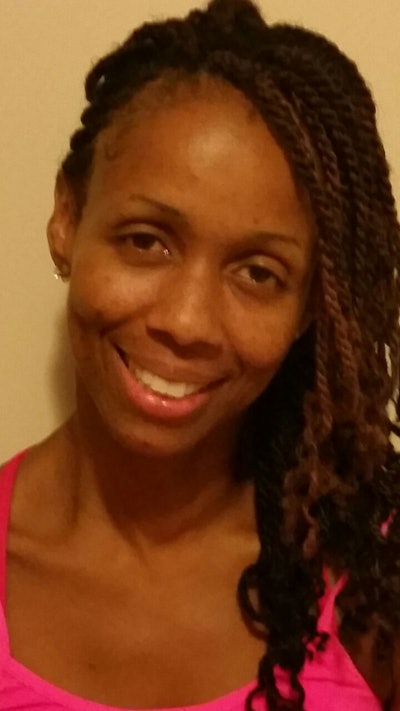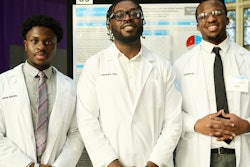Sleep is one of those things in life that we all need yet most of us don’t get enough of. We are generally aware of the importance of sleep in the recovery of our bodies and minds and know we should be better about getting more sleep, but rarely do.
Meanwhile, the consequences of not getting enough sleep are long-term. Sleep is important to immune function (without sleep, we are more susceptible to disease and injury); metabolism (weight management and body composition (i.e. gains in body fat, muscle synthesis/growth)); memory and learning (during sleep, we process existing memories and prepare for new learning); and emotional regulation (prevention of mood disturbances (depression, anxiety, etc.). Without sleep, our mental judgment and physical performance suffer, compounding the risk of additional problems.
 Tanya Leake
Tanya LeakeIn addition, sleep is a key factor in recovery from stress. During sleep, which can trigger what is sometimes referred to as “the relaxation response,” our bodies (and minds) can undergo repair. In fact, I view sleep and stress as two sides of the same coin. Long-term, chronic stress is the most underrated factor affecting our health negatively while consistent quality sleep is the most underrated tool to affect our health positively.
From an educational perspective, this is a potentially significant factor. Studies have linked sleep quality to academic achievement. If we are not getting enough quality sleep, we are not optimizing our academic potential (and experiencing chronic stress). From a diversity perspective, when you add to that the significant differences in sleep habits and attitudes of various ethnic groups, you have an even greater gap in education potential.
According to the CDC, 1 in 3 Americans are sleep-deprived (not getting the recommended 7 hours). According to the National Sleep Foundation, close to half of Americans say that a lack of sleep has affected their ability to perform in the previous week. Yet, the National Sleep Foundation’s 2018 annual Sleep in America poll finds that only 10 percent of American adults actually prioritize sleep over other daily activities, including daily activities specifically related to health, fitness and nutrition.
If sleep is such a (the?) key factor in our physical and mental recovery and our overall health and well-being, why don’t we prioritize it? Even with everything I know about the importance of sleep as a health professional, it remains one of my key challenges (Although I target getting the recommended 7-8 hours of sleep every night, I consistently average only about 6 hours.).
Given the impact sleep (or a lack thereof) can have on both students and faculty and staff at higher education institutions, what is being done about it? Studies that link sleep quality and academic achievement support the concept of higher education institutions providing resources to support and promote quality sleep.
What are ways higher ed institutions can play a role?
- Talk the walk and walk the talk. Faculty and staff should encourage students to get the recommended amount of sleep, discourage “all-nighters” and unhealthy sleep patterns and share strategies, resources and tips for quality sleep.
- Take the pulse. Institutions can use surveys to understand and act on issues related to sleep and sleep quality in their community (Use the Sleep Health Index from NSF.).
- Provide information resources on and support resources for sleep quality, the optimal sleep environment, beneficial pre-sleep/bedtime transition routines, as well as sleep disorders and symptoms.
When I was at Stanford, I had heard about a course on sleep that was part of a sleep study at Stanford. I didn’t take the class because I was so concerned about my other coursework. At the time, that course seemed like a “nice to have.” In hindsight, I wish I had taken it. I like to think I would have developed better sleep habits and increased my long-term success as a result.
Ironically, as young children, when we have the luxury of sleep, we fight it, while, as adults, when we don’t have the same luxury, we want it. I am a perfect example. I am what you would call a “night person.” When I was younger, my father used to call me his “owl” because I enjoyed staying up with him late at night. He himself of course was a night person and often stayed up until the wee hours of the morning watching TV and piddling around the house.
Like me, most of us need help in going beyond understanding of the importance of sleep, to acting on it. It is about changing habits and shifting perceptions. With our culture of “doing,” it is often hard to ‘feel’ like we are doing something when we are sleeping. Particularly in higher education, there is almost a tradition of a lack of sleep that is a rite of passage. To “make the grade,” we spend a lot of time sacrificing sleep when sleep may actually be what we need to do just that. When we acknowledge the link between sleep, health and academic performance AND act on it, individuals and institutions of higher education will be better for it.
Based in Atlanta, Tanya Leake is a certified health coach, group fitness and dance instructor, wellness educator, presenter and author of “GET A GGRiPP: The Health and Wellness Movement Rooted in Black Cultural Traditions.” Check her out at embodywell.com and nostupidquestionsshow.com!


















